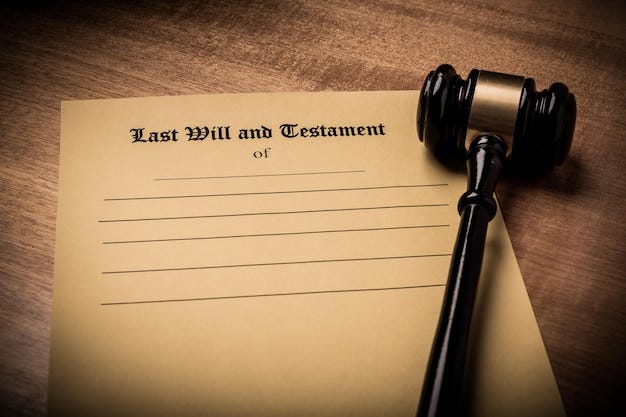FC 171 on Whole Nine Yards fetched some interesting reactions. I will share a couple of them:
Tarun Kunzru says: “Walking the 9 yards at the right pace and at the right time is what determines positive outcomes. I know of people who suffer from the ‘treadmill syndrome’. They run like crazy but end up being in the same place.”
M A Ganesh says: “As in golf, the par score is set with so many shots per hole. You begin well, but disaster strikes with a wild shot into the rough, and later the ball taking to the water. You curse, and the next hole is great, life is repeated!! As Tiger Woods said, recovery is the name of the game! Don't let the previous bad shot rattle you! But prepare to walk 7000 yards. That’s the whole nine yards for golfers.”
The men in blue faltered at the 9th yard and denied themselves the joy of holding aloft the World Cup. Having won 9 matches at a trot, to lose to a team that barely fared well in the earlier rounds was indeed tragic. As if to heal the wounded pride, in the first T20 played on the 23rd, team India won against the Aussies with SKY on a run rampage. Not to forget the cameo from Rinku Singh to take the team over the line.
Author’s Note: I am writing this post on a matter that has trappings of law. But please read on, you won’t find it taxing.
📃 Intestacy
The word may rhyme with ecstasy, but there is no reason to rejoice. In simple terms, intestacy is the condition of a person's estate who dies without leaving behind a Will or some other form of bequest like nomination. The estate of the deceased is referred to as an “intestate estate” or the person who died will be said to have died intestate. (not to be mistaken for interstate 😊)
There’s a famous saying, ‘Where there is a will, there’s a way’. In intestacy, it becomes ‘where there is no Will there are relatives’ which rings true. In the context of some of the valid Wills being challenged in courts by disentitled heirs, the absence of a Will spells chaos.
Even in this day and age, a large section of the population shies away from drawing up a Will. Some feel that they have plenty of life left in them, and why then should they be contemplating death? Others wrongly assume that nominating the wife or someone else is adequate and there’s no need to make a Will.
All of you may have come across situations wherein a person known to be hale and hearty dropped dead or passed away while asleep. Some of them may be in their prime or past their prime. Age makes no difference if the deceased had properties but left no Will. The attitude of potential beneficiaries may range from “We leave all that to our mother, we have no claims” to “We should get our share of the pie” or “I should get more as I was looking after my father and spending a whole lot on his treatment.”
I came across one such relinquishment by an Indian who had become a US citizen. He was not keen to claim his share in the father’s property. It is another matter that had he taken his share, he would have had to pay inheritance tax in the US.
Talking of post-mortem taxes, one is reminded of Benjamin Franklin's famous statement made in 1789: “Nothing is certain except death & taxes”. Apparently, Christopher Bullock, an English actor, and dramatist, was the first to utter the quote during the staging of the play, The Cobbler of Preston in 1716, and it reads “Tis impossible to be sure of anything but Death and Taxes.”
Looks like taxes are as ancient as the dawn of civilisation! Speaking of taxes, Mark Twain quipped,
“The difference between a taxidermist and a tax collector is that the taxidermist takes only your skin.”
India too had an inheritance tax regime. The Estate Duty Act 1953, was enacted on 6th October 1953. It had a very complex structure of valuation of the different components of the estate of the deceased. The estate duty was set at a rate as high as 85%. The duty was payable on property whether settled or unsettled, namely, whether the person died leaving a Will or intestate.
There’s a concept called ‘donatio mortis causa’ which means ‘gift made in contemplation of death’. Under Sec.191 of the Transfer of Property Act, a person may dispose, by gift made in contemplation of death, of any property which he could have disposed of by Will. Such a gift may be resumed by the giver and will not take effect if he recovers from the illness during which it was made or if he survives the person to whom it was made.
Under the Estate Duty Act, property gifted during the two years prior to the donor’s death was also included for purposes of payment of duty. Mercifully, this law was abolished in 1985, the only instance of the government putting to death a law that taxed the dead! This joy may be short-lived, if rumours of the re-introduction of estate duty are to be believed.🤞
In anticipation of the re-introduction of estate duty, many high net worth individuals and rich families have set up private trusts and family offices to insulate the estate from duty. If you wish to have a high-level understanding of matters pertaining to Private Trusts, you may use this link: 🔗Private Family Trusts in India: Asset Protection Guide. If you are also keen to know more about family offices, please use this link: 🔗What Is a Family Office and Do You Need One?
Intestacy is not desirable. It creates a host of problems for the legal heirs. At the same time, gifting away property during one’s lifetime requires a lot of circumspection. Please read my post on gifts, if you haven’t:
And I wrote about living wills as part of one of my earliest FC posts, which you can read here:
Now to end in a lighter vein:
How many Wills would Will Smith smith, if Will Smith could smith Wills?
Here’s another:
Priest: Blessed are the meek, for they shall inherit the earth.
Lawyer: Blessed they are indeed, for they pay no inheritance tax.
Guys, I hope you liked this post and found it not too taxing. Until next week, stay safe and take care. Ciao.









Estate Duty Act was brought by TTK to tax the estate of his rival Sivaramakrishnan of Simsons, as was the general perception in those days.
https://www.nineyardscoffee.com.au/collections/coffee-1